Anxiety in Children
This post may contains affiliate links which means we may receive a commission on products or services that you purchase through clicking on links within this blog.
Anxiety in children is becoming increasingly common.
I went through a great deal of issues with anxiety from my own childhood and for many, many years before I even knew what it was.
My six year old son has been showing signs of anxiety for awhile now, and the last thing I want is for him to go through what I did.
What is anxiety?
Anxiety is part of our survival instinct. If we are faced with a threatening situation, our brains and bodies respond by kicking into survival mode. We get a rush of adrenaline to help us get ready to escape the danger.
Most children learn to cope with normal fears and worries. But some children may need extra help when they feel anxious more than other kids their age.
Some children react more quickly or intensely to situations they might find threatening and find it harder to get their anxious feeling under control.
Some kids also find the world to be more scarier or dangerous than others.
Children may need extra support if they feel more anxious than other kids of the same age, their anxiety stops them from doing or participating in activities or their worries seem out of proportion to issues they are experiencing.
In most cases, anxiety in children is short lived and often goes away after awhile.
As parents, it can be hard to know the difference between normal worries and those that are more serious.
How anxiety affects children
Anxiety doesn’t just affect how children feel, but has an impact on their thinking. The fear of danger they are worried about is believed to be much bigger than it actually is. And the more they think about it, the worse it seems to be.
Children that experience anxiety might find their own ways of coping and managing distressing situations. Which might be avoiding the situation or getting someone else to do it for them.
And while this works temporarily, it is by no means a long term solution. Avoiding fearful situation makes it more likely that they’ll feel the same or worse and will be unable to manage it next time.
Anxiety can result in physical symptoms like trouble sleeping, stomach aches, headaches, difficulty concentrating, irritability and tiredness.
A child with anxiety may –
have a lot of worries
have a lot of fears
gets upset easily
have trouble sleeping or nightmares
not like trying new things
try to get other people to do things they don’t want to
avoid situations they are worried or scared about
seek reassurance
get agitated
get headaches or stomachaches often, especially when not at home
want things to be perfect and gets upset when it’s not
have low self-esteem and the belief that they can’t do anything
Your child may –
cling to you
ask for help for things they already know how to do
always sees the negative side of things
cries or gets upset over small things
be scared of things like the dark, being alone, tests etc
prefer to watch others instead of participating
worries about doing things right
not want to go to sleep by themselves
not want to get ready for the day
cry and be upset over small problems
complain of headaches or stomach pains
become restless
have trouble concentrating
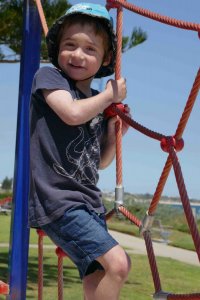
Types of anxiety
General anxiety
General anxiety covers a broad range of excessive and unrealistic worries. They might worry about things that could happen, their schoolwork, their popularity, or things that have happened in the past. They lack confidence and need to be reassured often.
Phobias
Fear of objects, situations or events that cause intense fear and avoidance even though the threat of harm is small.
Social anxiety
Social anxiety usually results in extreme levels of shyness and fear of being seen negatively. Children with social anxiety avoid things like talking to new people, speaking up in class or performing in public. They may be self-conscious and find it difficult to form friendships.
Separation anxiety
Separation anxiety is when children fear and are distressed at being away from their main caregivers. Young children can’t understand why their caregivers have left and are unsure if they will return. Some older kids might worry that something bad will happen while they are separated. Crying, tantrums, clinginess and pleading for the caregiver not to leave are common.
How you can help
Children with anxiety often lack confidence in their abilities and get overwhelmed easily. They try hard to avoid the things that cause them anxiety, but are not learning how to deal with it. By avoiding it, the fear grows and they don’t realise the things they fear usually won’t happen
A common response from adults is to step in and solve the problem. But this doesn’t solve the problem and the child is likely to believe that there is something to fear. You are reinforcing and fuelling their anxiety.
They miss out on opportunities to develop coping skills and to prove to themselves that they can deal with anxious thoughts or feelings next time it arises.
The best thing to do is to help them learn how to cope with anxiety.
How to help your child cope with their anxiety
Acknowledge their anxious feelings – don’t ignore or dismiss them
Pay attention to your child’s feelings
Try to stay calm when your child is feeling anxious
Learn to recognise small accomplishments and praise them for it
Don’t punish their mistakes
Try to maintain a routine, but allow some flexibility
Gently encourage them to do things that make them anxious
Praise them for doing something they were anxious about
Try not to label them as shy or anxious
Try to normalise it
Explain that it happens to many people at some point in their lives, and although it can be scary, there are things you can do to help.
Get them to give it a name
It might help them to feel like something else is the problem, not them. It can go from being a nameless, faceless thing that they have no control over, to something more tangible that they can acknowledge and overcome.
Taking things one step at a time
Gradually building up the strength and courage to do the things that provoke anxiety. Like making it through a few minutes of a sporting activity, and returning the following week and staying a bit longer.
Practising mindfulness
Use yoga, breathing exercises, meditation and mindful practices with them so they learn to manage their own anxiety
Anxiety in children is treatable but can take some time.
It isn’t about eliminating anxiety completely, but rather giving children the skills to manage it and to not let anxiety take over their life so they can enjoy it.
Do you have an anxious child? What things have you found that have helped?
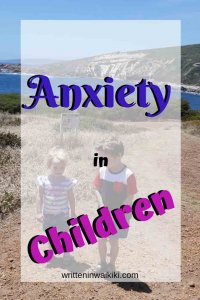

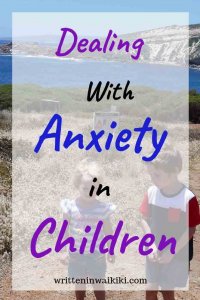
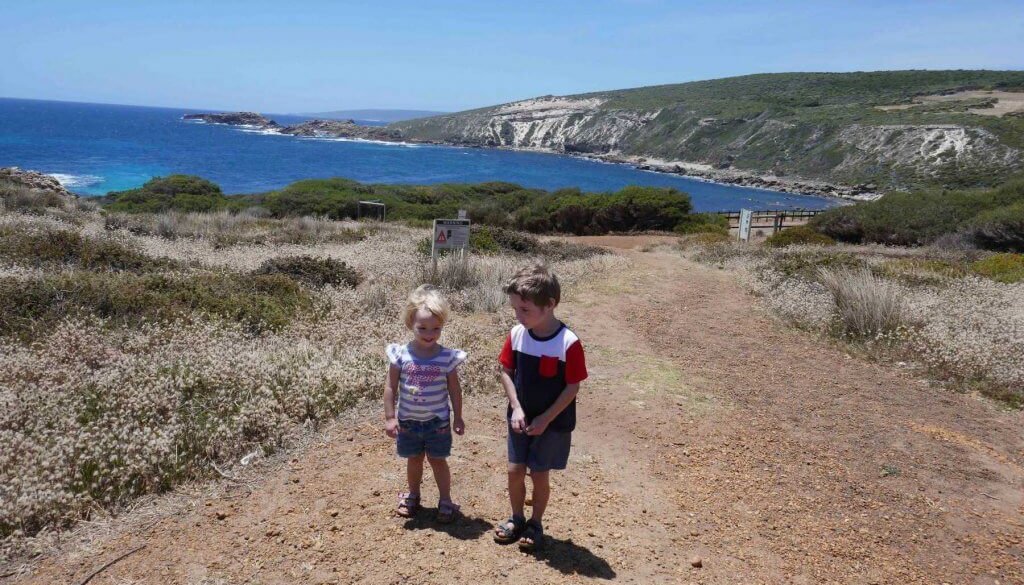
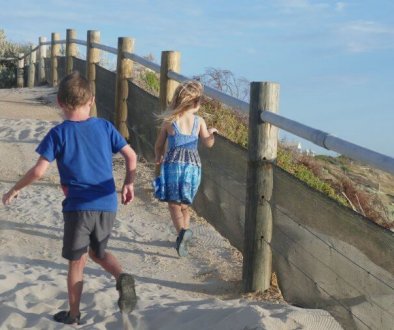
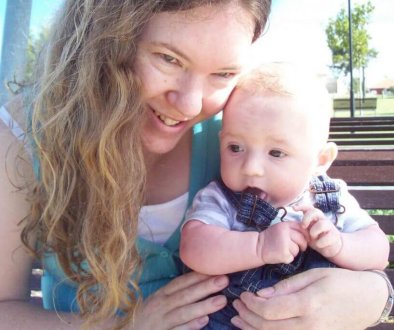
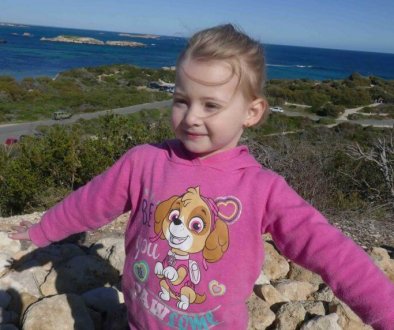
May 2, 2019 @ 8:41 am
This is a very informative read and every parent must read this for their kids’ wellness.
May 2, 2019 @ 11:49 am
This was extremely helpful – I have been wondering if my almost-6 year old has anxiety.
May 3, 2019 @ 12:34 am
I’ve heard so many wonderful things about Waikiki! Love this post! Being so in tune with childhood struggles is so awesome! Right on!
May 3, 2019 @ 7:00 am
Great tips! Thankfully my son doesn’t get anxiety, but if it ever comes up I’ll know where to come 🙂
May 4, 2019 @ 11:32 am
What a well written and informative article! Thank you for sharing. I see some signs of anxiety in my daughter and I will try some if these strategies. Mindfulness is so important for kids. I am happy that their school does yoga every morning to start the day!
May 4, 2019 @ 11:47 am
We have a daughter with auxiliary and a son with autism. We have found that communication is very important. It’s also required, that we couldn’t put any restrictions on topics, we had to be prepared to be available to discuss what ever was on their minds. Taking the time for them to work out their challenges at their time, understanding that most things were not going to be resolved quickly.
May 6, 2019 @ 1:05 pm
My oldest has some pretty extreme anxiety. She calls them her worries. With counselling she was learning how to cope but recently it has become a multiple times a day thing. We are working on talking through them and trying to prevent panic attacks. We are very open with her about it. We use breathing techniques drawing pictures a journal/diary and prayer to get her through the worst ‘worries’.
May 8, 2019 @ 11:22 am
I think it’s a wonderful article to help parents who have children who may be a little more anxious than others. We’d love to collaborate with you sometime on guest posts about raising children with anxiety. May is Mental Health Awareness Month and it’s perfect to raise awareness on kids who just need a little more love than usual. Thank you for sharing!
May 8, 2019 @ 12:15 pm
Loved the post. Really great tips that I can use for my future babies! My sister is pregnant now with her first child, so I will definitely share these tips with her. Thanks!
Kendra?
May 8, 2019 @ 5:03 pm
Great tips, I love this post because the topic is so important, and something every parent should be aware of! I work as a special education teacher in Finland and it seems like anxiety in children is becoming more and more common. Thank you for this post!
May 11, 2019 @ 11:41 am
Great tips! My son has social anxiety, he has had it since he was 8 years old and still to this day at 19 struggles with social and phobias! It’s so sad to watch and all the tips you have written are great ways to handle it!
Michele~Midlife Mirror
May 11, 2019 @ 7:01 pm
Wonderful post. I don’t think enough parents recognized anxiety in their children and I think it’s so, so important that they do!
– Nyxie
https://www.nyxiesnook.com/what-is-the-anorexic-iceburg